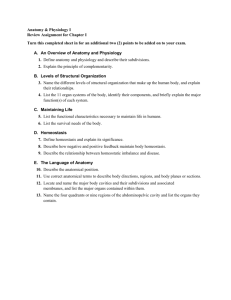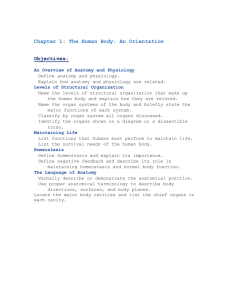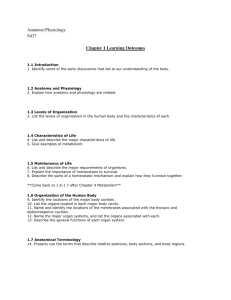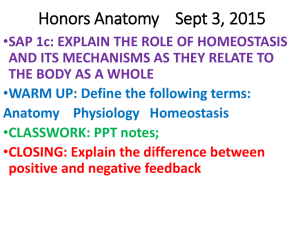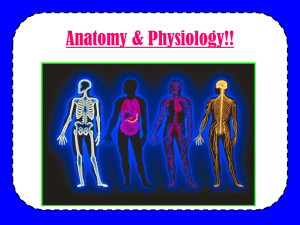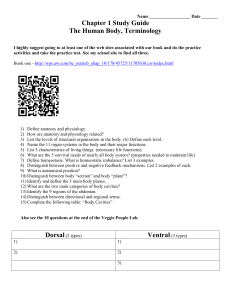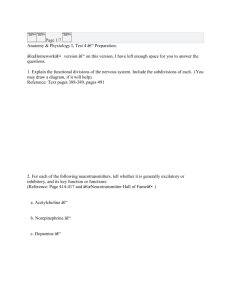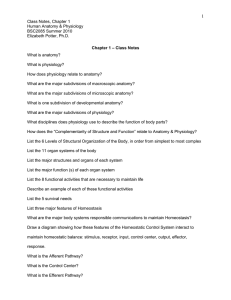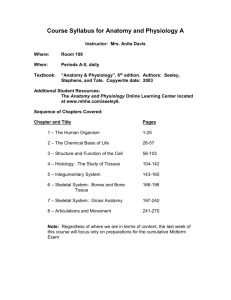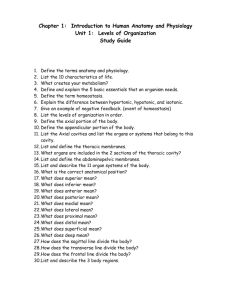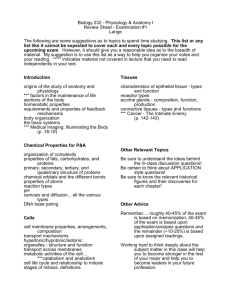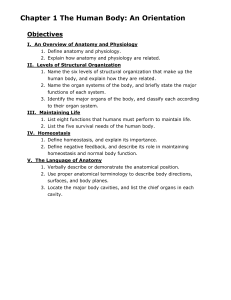Unit 1 chapter 1
advertisement
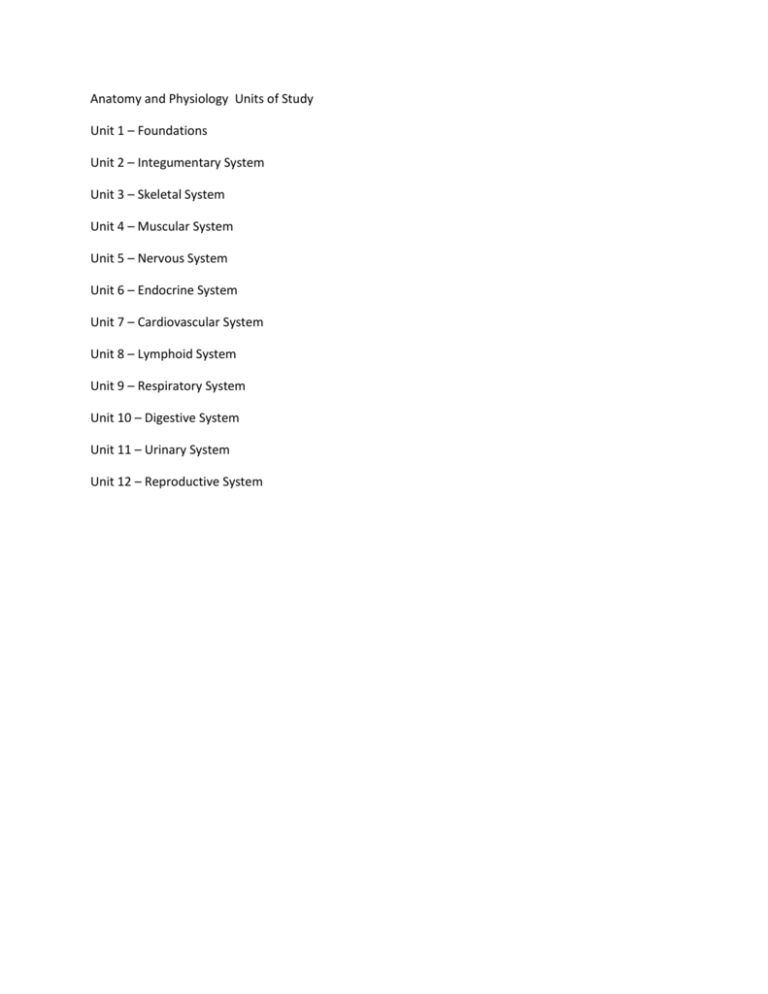
Anatomy and Physiology Units of Study Unit 1 – Foundations Unit 2 – Integumentary System Unit 3 – Skeletal System Unit 4 – Muscular System Unit 5 – Nervous System Unit 6 – Endocrine System Unit 7 – Cardiovascular System Unit 8 – Lymphoid System Unit 9 – Respiratory System Unit 10 – Digestive System Unit 11 – Urinary System Unit 12 – Reproductive System Unit 1: Foundations of Anatomy and Physiology By the end of Chapter 1 – Introduction to Anatomy and Physiology you should…. Know: The basic organization and structure of the human body and appropriate academic terminology(vocabulary), principles, and methods commonly used in the study of human anatomy and physiology. As you study in unit one make certain you can… Do: Describe the basic functions (characteristics) of living organisms. Differentiate between anatomy and physiology, and describe various specialties between each discipline. Identify the major levels of organization in a living organism. Identify the eleven organ systems of the human body. Explain the concept of homeostasis. * Describe how negative feedback and positive feedback are involved in homeostatic regulation. * Use anatomical terms to describe body sections, body regions, and relative positions. Identify major body cavities and their subdivisions. * Laboratory Investigation Unit one Academic Vocabulary Development paries = Bios = pathos = cardium = peri – dorsum = pronus = homeo = -stasis = -logy = supinus = medianus = venter = Describe the basic functions of living things. Academic Vocabulary: Visual representation: Summary Response: Extension: Differentiate between anatomy and physiology, and describe various specialties between each discipline. Academic Vocabulary: Visual Representation: Summary response: Extension: Identify the major levels of organization in a living organism. Academic Vocabulary: Visual representation: Summary Response: Extension: Identify the eleven organ systems of the human body. Academic Vocabulary: Visual Representation: Summary response: Extension: Explain the concept of homeostasis. * Academic Vocabulary: Visual representation: Summary Response: Extension: Design an experiment to test and show homeostasis and negative and/or positive feedback in a human. Describe how negative feedback and positive feedback are involved in homeostatic regulation. * Academic Vocabulary: Visual Representation: Summary response: Extension: Design an experiment to test and show homeostasis and negative and/or positive feedback in a human. Use anatomical terms to describe body sections, body regions, and relative positions. Academic Vocabulary: Visual representation: Summary Response: Extension: Anatomical Simon - Says Identify major body cavities and their subdivisions. Academic Vocabulary: Visual Representation: Summary response: Extension:
